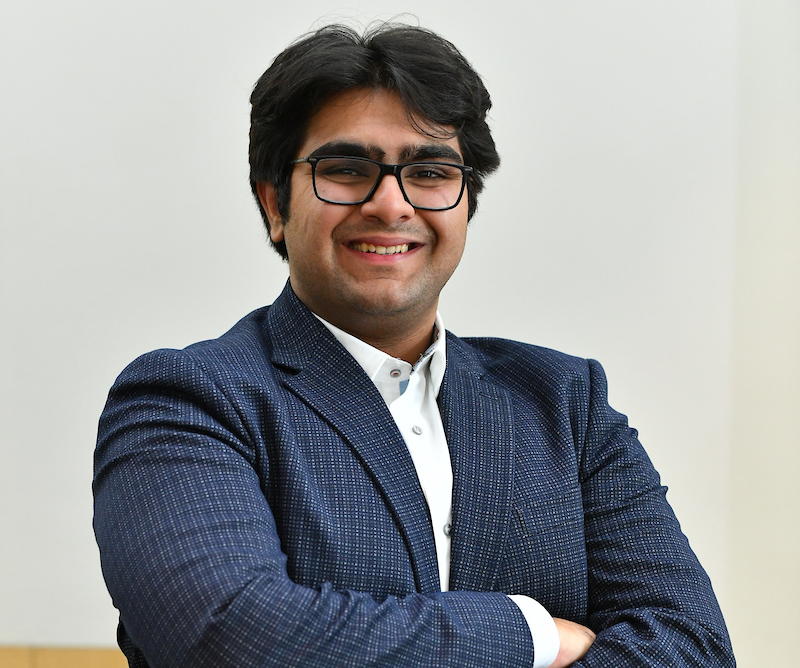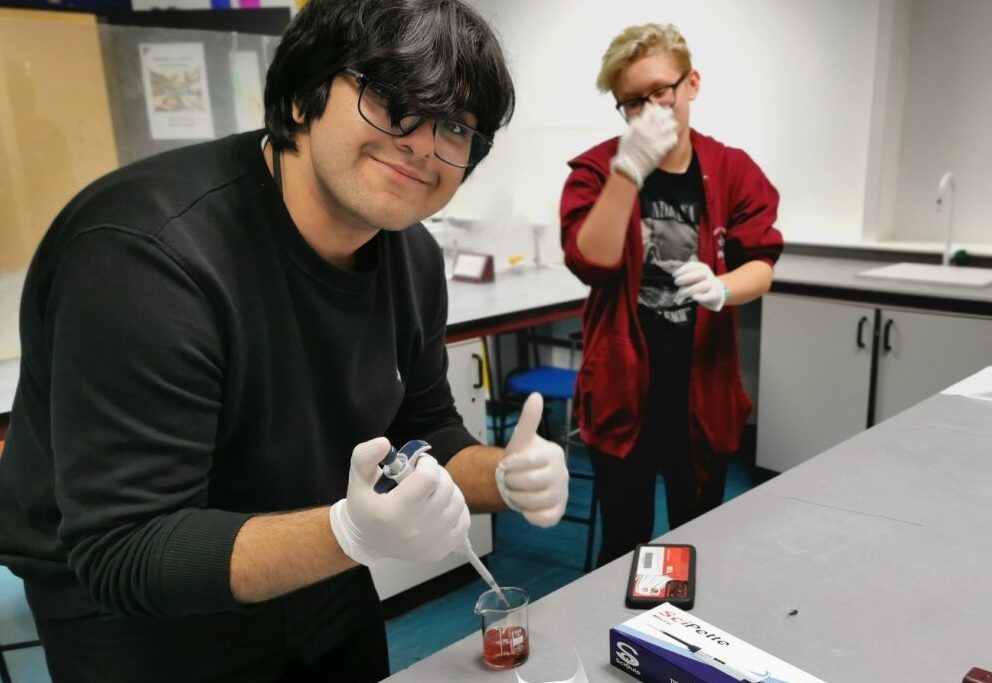
DNA research in school
shaped my career path
Hamdaan shares how an IRIS school research experience played a pivotal role in his decision to pursue chemical engineering at the University of Leeds.
My family and I had always planned for me to be a doctor, but taking part in the IRIS DNA Origami project at sixth- form changed those plans. One night I was modelling my scaffolds and staples, I was up until 2 am trying to figure it all out and I realised that, whilst it was challenging, I felt like I belonged here. Taking part in the analytical research, seeing the problem-solving and even seeing some of the applications was inspirational, it showed me ‘this is what you could be, so give it a go.’
“Throw yourself into it and don’t look back because the skills you gain from it are quite honestly invaluable. And that no matter what, you will come out a better person”
It was difficult to explain to my family that I wanted to pursue chemical engineering instead of medicine at the time, but I had a conversation with my mum recently and she said: ‘I can’t believe I ever said you should be going into that field, because look at you now. You’re going off to do so many different things in so many different places in the world and you’re only 19’. Yes, it was a hilly road to begin with, but I’m seeing the benefits of that journey now.
I’m thankful for IRIS, the project leads and my teachers for being able to support me with the project. I don’t know what would have happened if I didn’t do it.
 Hamdaan taking part in the DNA Origami project at St John Voluntary Academy in 2021
Hamdaan taking part in the DNA Origami project at St John Voluntary Academy in 2021Without seeing why you’re studying science, there is no motivation for exploring it. If schools use research as a vector to try to get more young people into these diverse fields of study, they’ll allow students to experience these subjects for themselves. Young people will become passionate about them and bring that passion into STEM careers. It will, ultimately, have a greater impact on science as a whole.
My advice to students thinking about taking part in an IRIS project is to throw yourself into it and don’t look back because the skills you gain from it are quite honestly invaluable. And that no matter what, you will come out a better person.
 DNA ORIGAMI
DNA ORIGAMIFind out how your students could investigate DNA as a building material and discover how it lends itself to much more than just biological code.
Students discover more about careers in nanotechnology during their visit to the University of Leeds.
